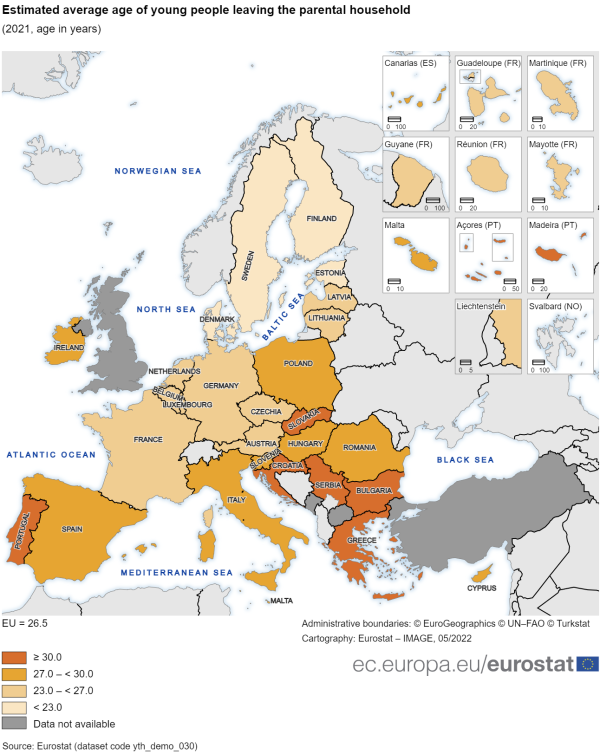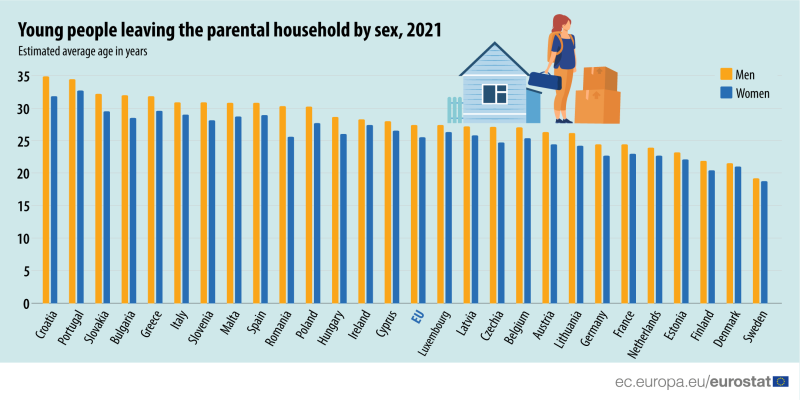Leaving the parental home is a milestone in the transition from childhood to adulthood, a sign of financial independence and a step towards starting a family of your own. But the age at which people leave their family home varies greatly across Europe, highlighting regional challenges faced by young people.
In Belgium, the average age to leave the family home is 26 years and two months, according to the EU statistics agency Eurostat. This is just below the EU average, which was 26.5 years in 2021. Belgians are far from the oldest in Europe to leave their parental home. In Portugal, the average age to leave the family home is 33.5.
In Croatia, Slovakia, Greece, and Bulgaria, the average age to leave the family home is also 30 years and over. By contrast, Sweden, Estonia, Denmark, and Finland have the youngest average ages at 23 years or less.

Estimated average age of young people leaving the parental household, 2021 Credit: Eurostat
Economic uncertainty rose sharply during the pandemic, having an impact on when people fly the nest. Laura Merla, a sociologist at UCLeuven, highlighted the "unfavorable economic context that has seen a deterioration the job market with more precarious, more flexible, shorter contracts, which make it hard to pay rent."
Gender differences
Gender plays a role in when people are likely to spread their wings, according to Eurostat. In all EU countries, women leave the parental home earlier than young men. The average age across the EU for women to leave is 25.5 years; for men it is 27.4 years.
In Belgium, women are just under 25 when they leave, while men are almost 27. Belgium is again below the male average. In 11 EU countries (Croatia, Portugal, Slovakia, Bulgaria, Greece, Slovenia, Italy, Malta, Spain, Romania and Poland), men left their family homes after the age of 30. Conversely, only in Portugal and Croatia do women move out of their parents' homes after 30.
In 2021, the largest gender gap was in Romania, with a 4.7-year difference in the leaving age of men and women. The EU average is 1.9 years. In Ireland, Denmark and Sweden, the gender gap was less than a year.

Visual of when young people leave the family home by sex in 2021. Credit: Eurostat
Connection to the job market
In countries where people leave the parental home at an older age, the labour force participation among young people (aged 15-29) is likely to be lower.
Leaving the parental household at an older age generally results in a lower labour force participation rate for young people.

